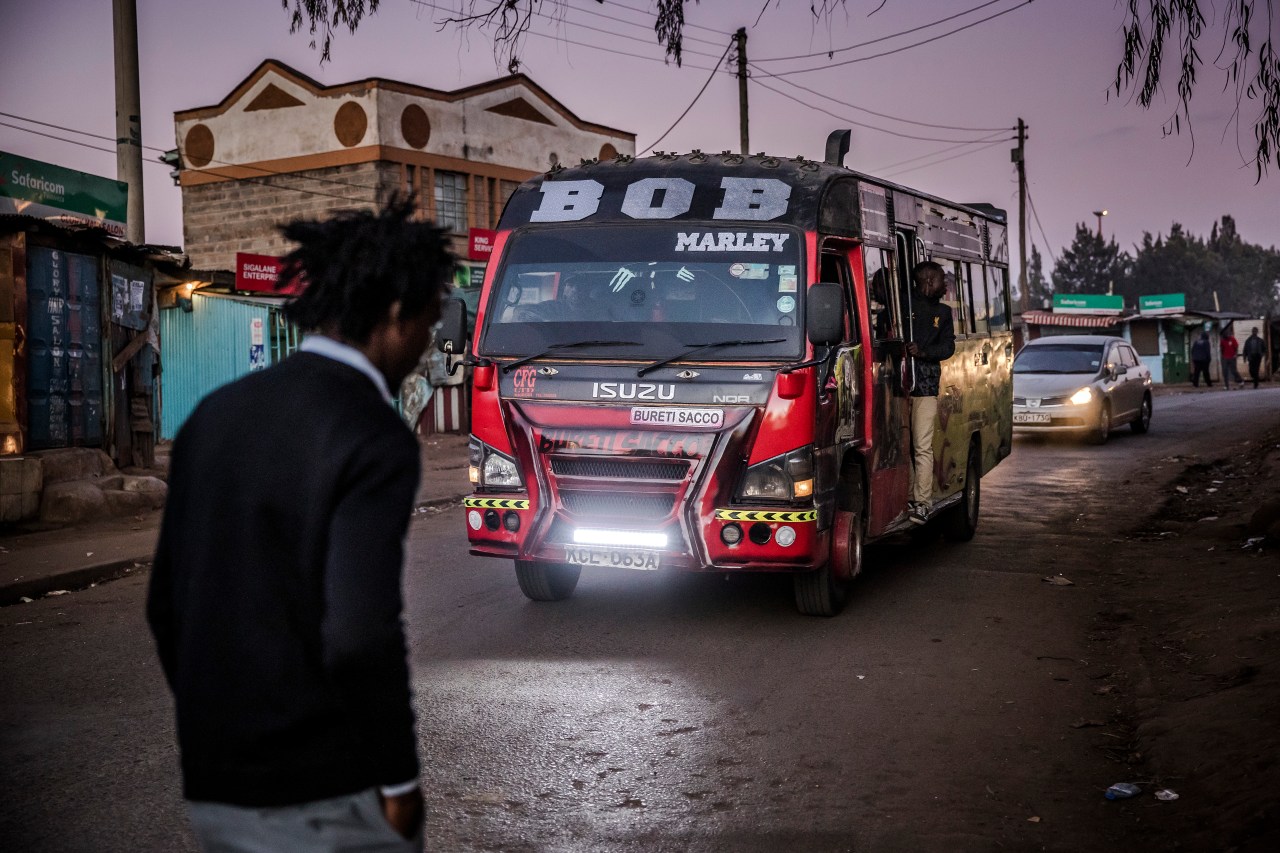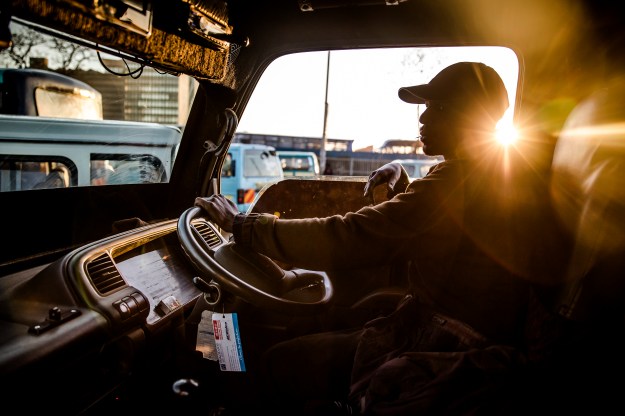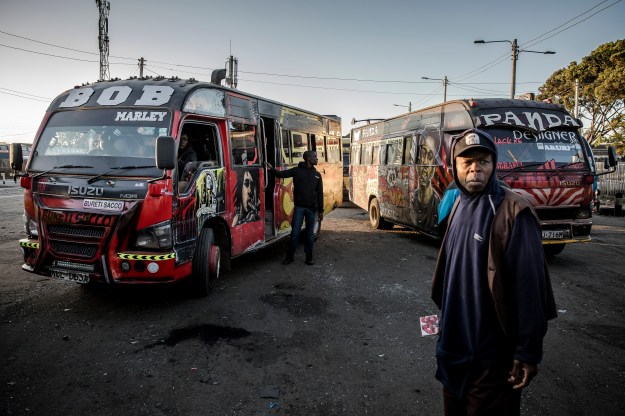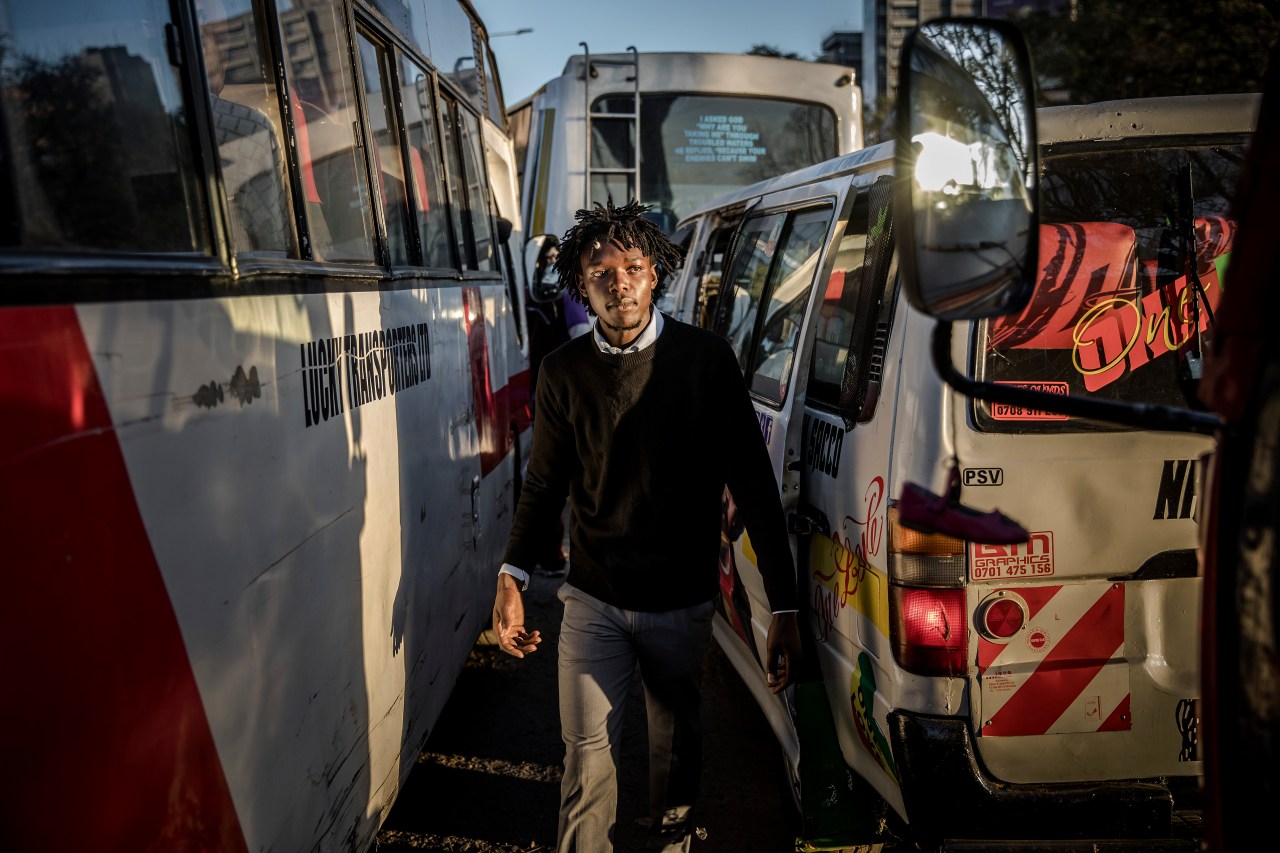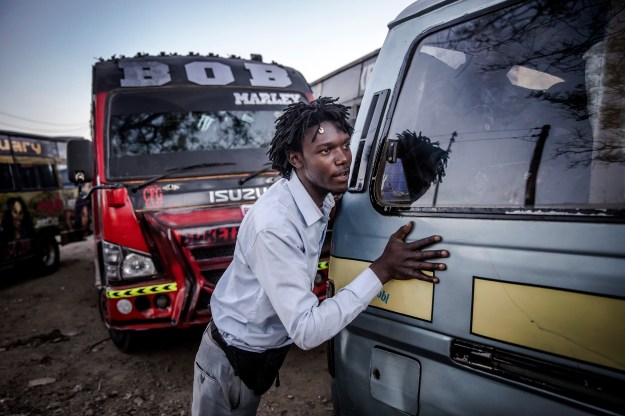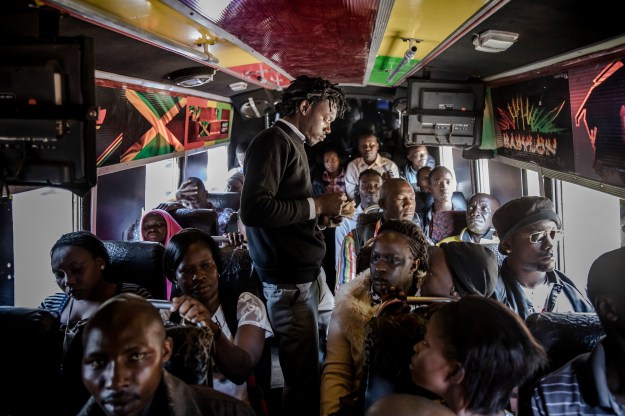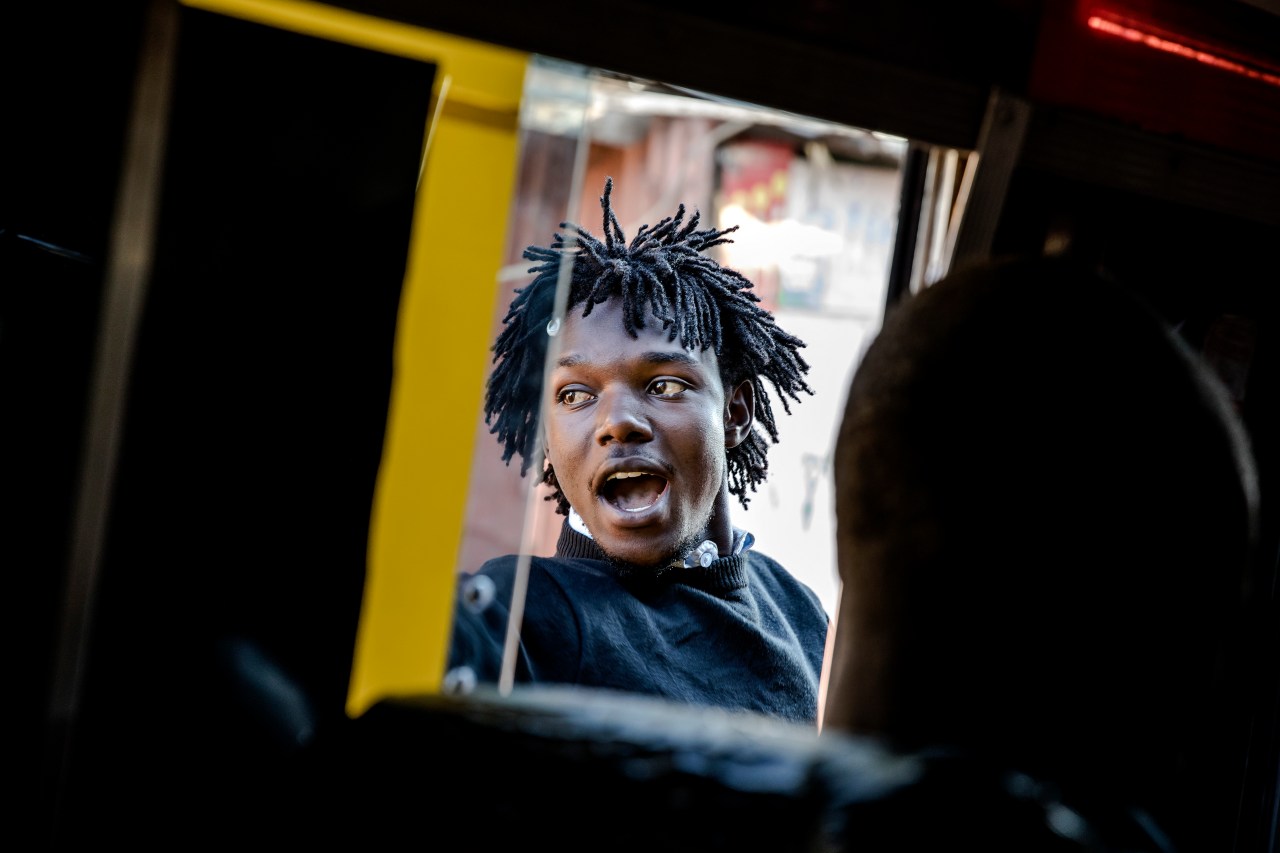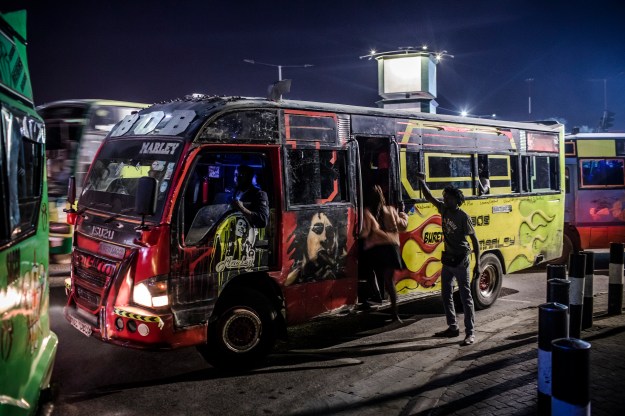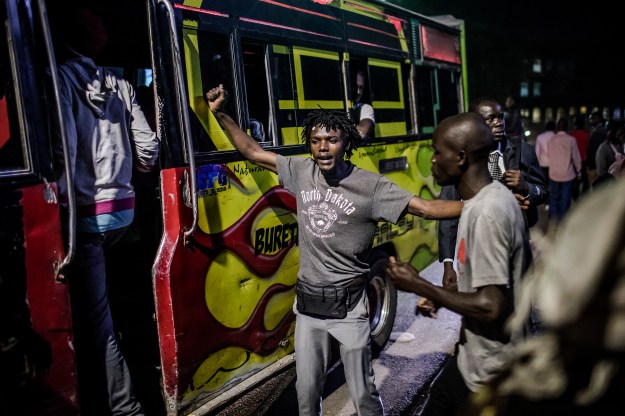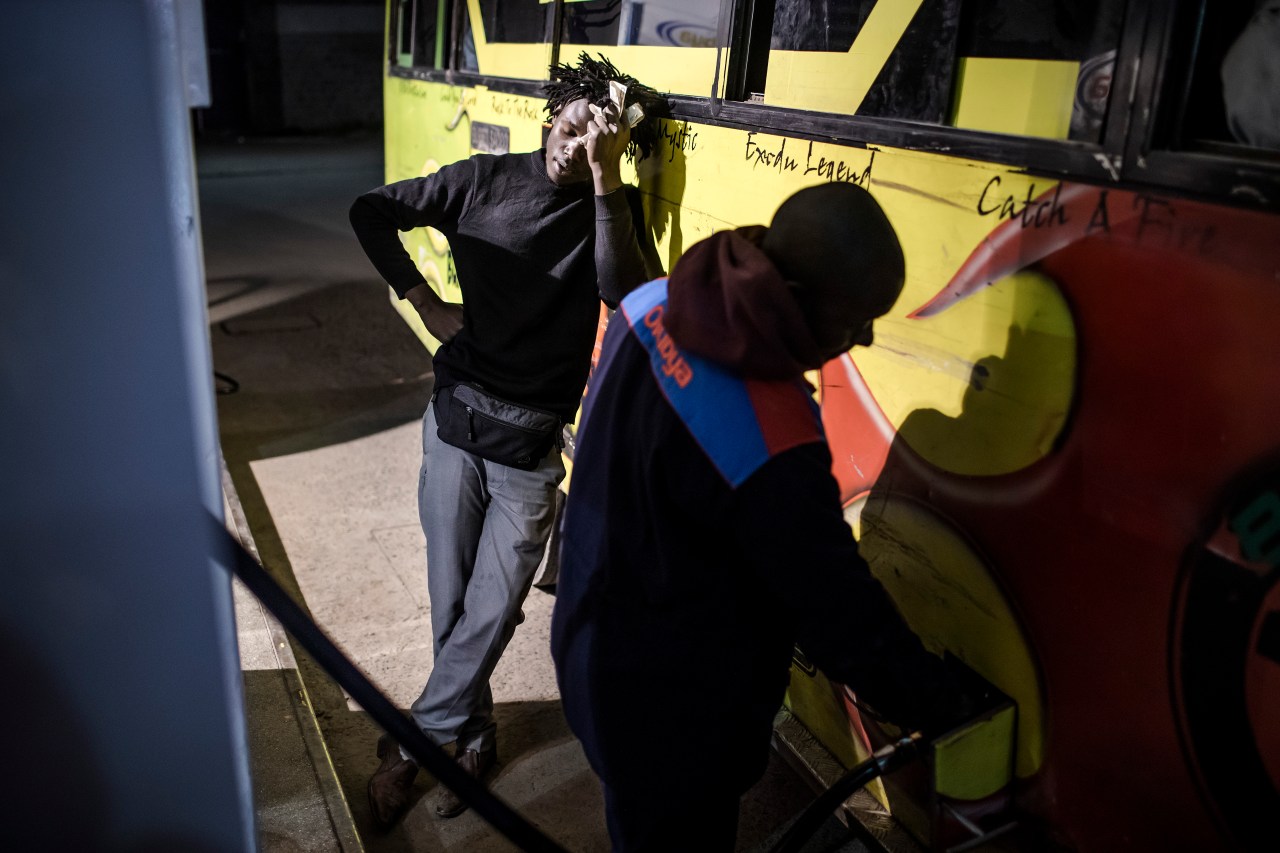Every morning at 5:30, Luhya Victor “Vickey” Ojunja steps outside his home in the Nairobi slum of Kibera, where he lives with his wife and two children, and waits for Bob Marley to pick him up.
Bob Marley is the name of his matatu, one of the ubiquitous, affordable, privately owned mini-buses that many Nairobians rely on for transportation. Matatus are customized, their exteriors often depicting hip-hop artists, pop stars, athletes, politicians, and even religious leaders. They’re known for their flashing lights and blaring music—a tactic to attract riders—which gives them a reputation as party buses.
Ojunja has been Bob Marley’s conductor for a year and a half. It’s his job to attract customers, collect fares, and help the driver navigate the route. Matutu conductors normally communicate fully in Sheng, a Swahili-based slang that mixes English and many of the other languages spoken in the city. The yelling, singing, and repetition of numbers by conductors is reminiscent of the sounds of a marketplace.
Ojunja says he and his driver often work 15-hour days. On a good day, he can earn 800 Kenyan shillings ($8). On a slow day, it’s closer to 200. “You can’t understand Nairobi without matatus,” Ojunja says. “It’s cool and allows me to spend my days interacting with people.”
